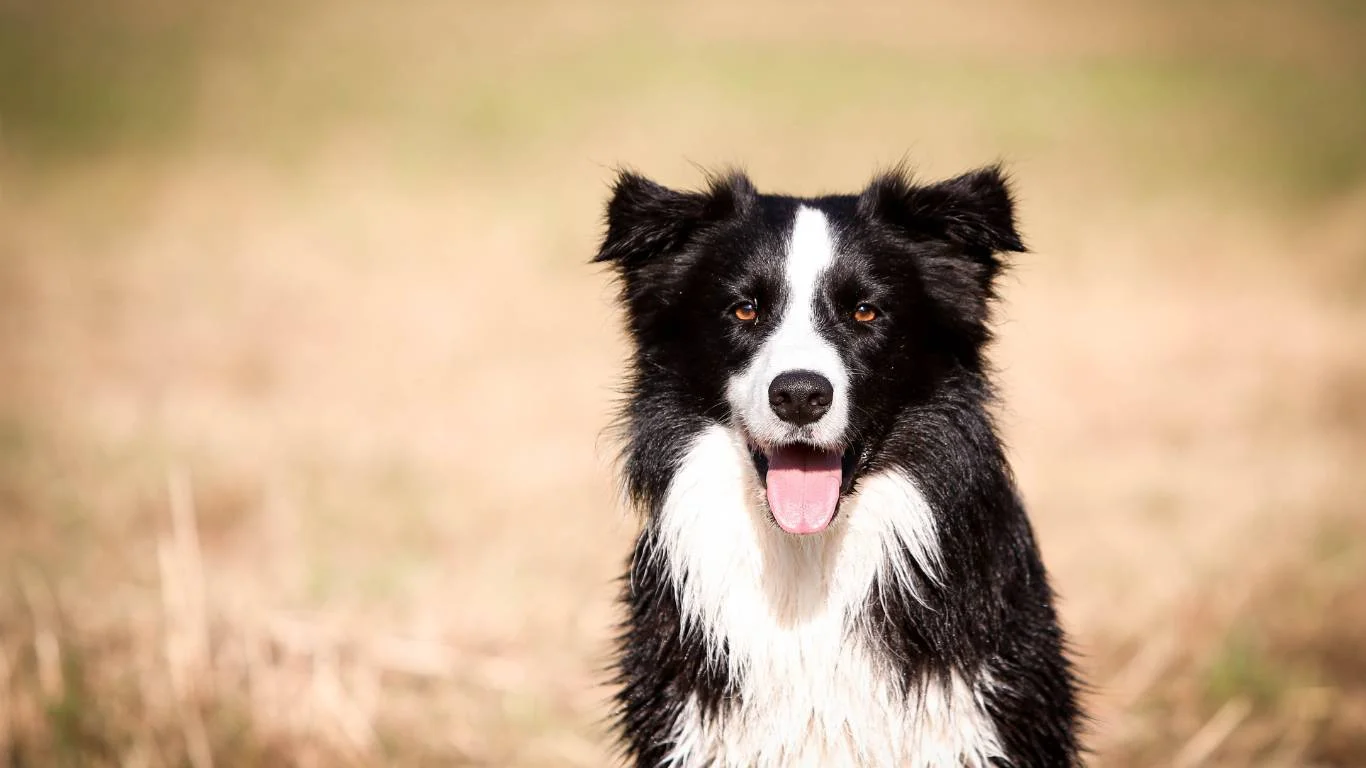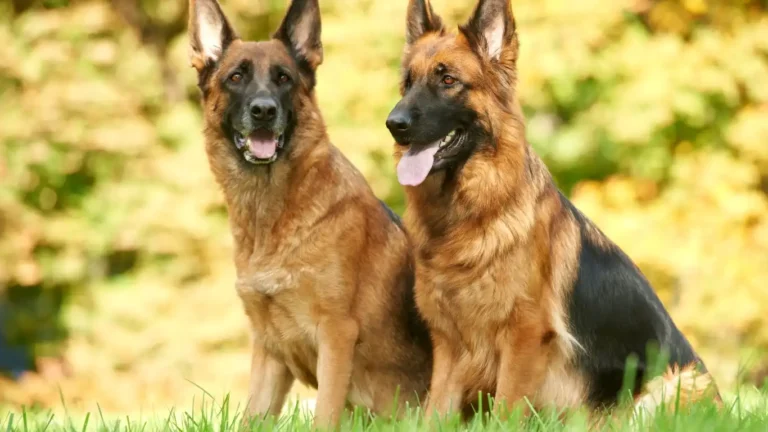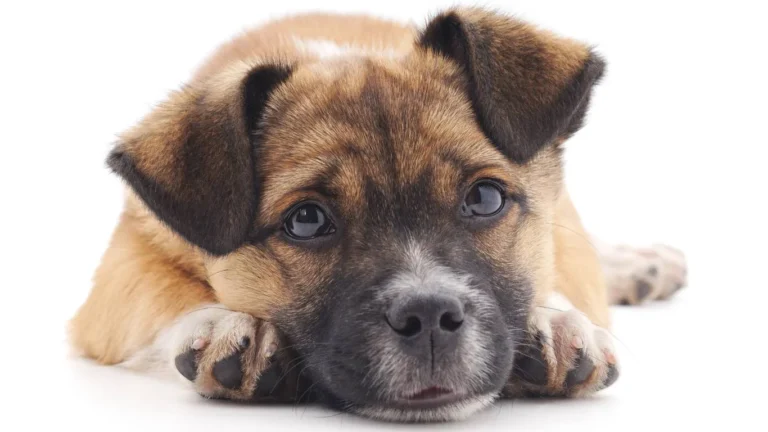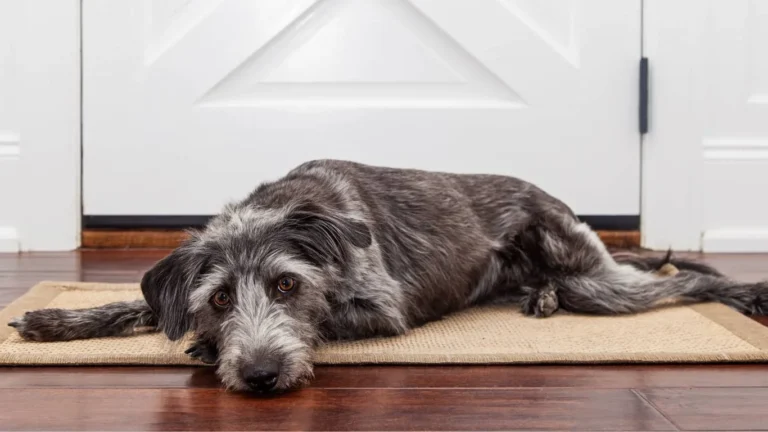Signs of Dehydration in Puppies and How to Treat It Effectively
As a Pet Nutritionist with years of experience working in veterinary clinics, I can tell you that one of the most critical things to look out for when caring for puppies is dehydration. Dehydration can sneak up on your little one quickly, and when it does, it can lead to some serious health concerns. Puppies, just like human babies, have delicate systems, and they are particularly vulnerable to becoming dehydrated. So, let’s dive into what dehydration in puppies looks like, how you can spot the signs early, and most importantly, how to treat it before it becomes an emergency.
Understanding Dehydration in Puppies
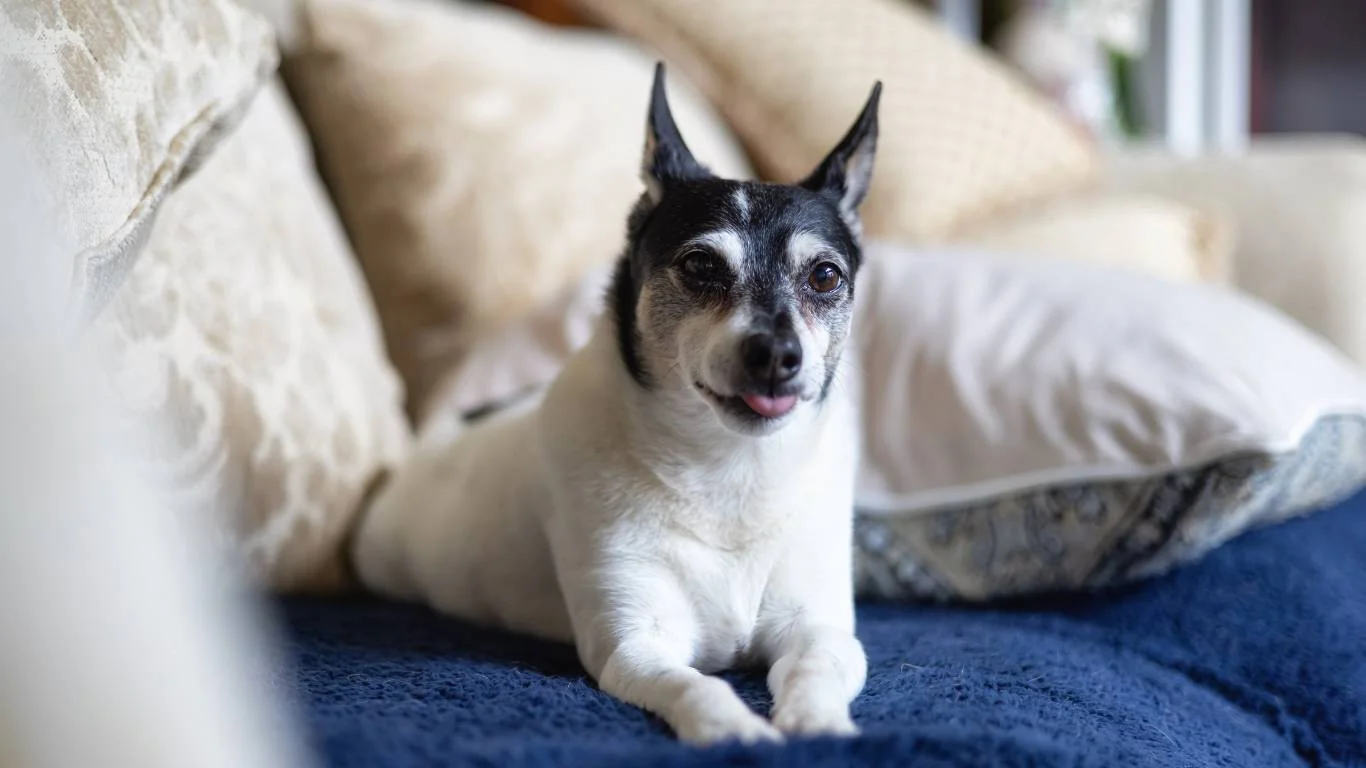
Dehydration occurs when a puppy loses more fluids than it takes in, leading to an imbalance that affects their organs and overall bodily functions. Puppies are especially prone to dehydration due to their smaller body size and higher metabolic rates, meaning they lose fluids much faster than adult dogs. It’s essential to recognize the signs early and know how to handle the situation before it becomes dangerous. As a pet care expert, I’ve seen many pet owners miss the early signs of dehydration, assuming it’s something minor. But it can escalate quickly, so it’s better to be safe than sorry.
What Causes Dehydration in Puppies?
Before we talk about the signs and treatments, let’s first understand what can cause dehydration in puppies. There are several reasons why your puppy could end up dehydrated:
- Hot Weather – Puppies can quickly lose fluids during hot days, especially if they’re active or left outside without enough access to water.
- Vomiting and Diarrhea – If your puppy is sick and experiencing vomiting or diarrhea, they’re losing fluids rapidly. This can lead to dehydration very quickly.
- Not Drinking Enough – Puppies are curious and playful, and sometimes they might just forget to drink water throughout the day.
- Health Issues – Certain health conditions, like kidney disease or infections, can cause excessive urination, leading to dehydration.
- High Energy or Exercise – Overexertion, especially on hot days, can cause dehydration in puppies who don’t replenish their water supply regularly.
Signs of Dehydration in Puppies
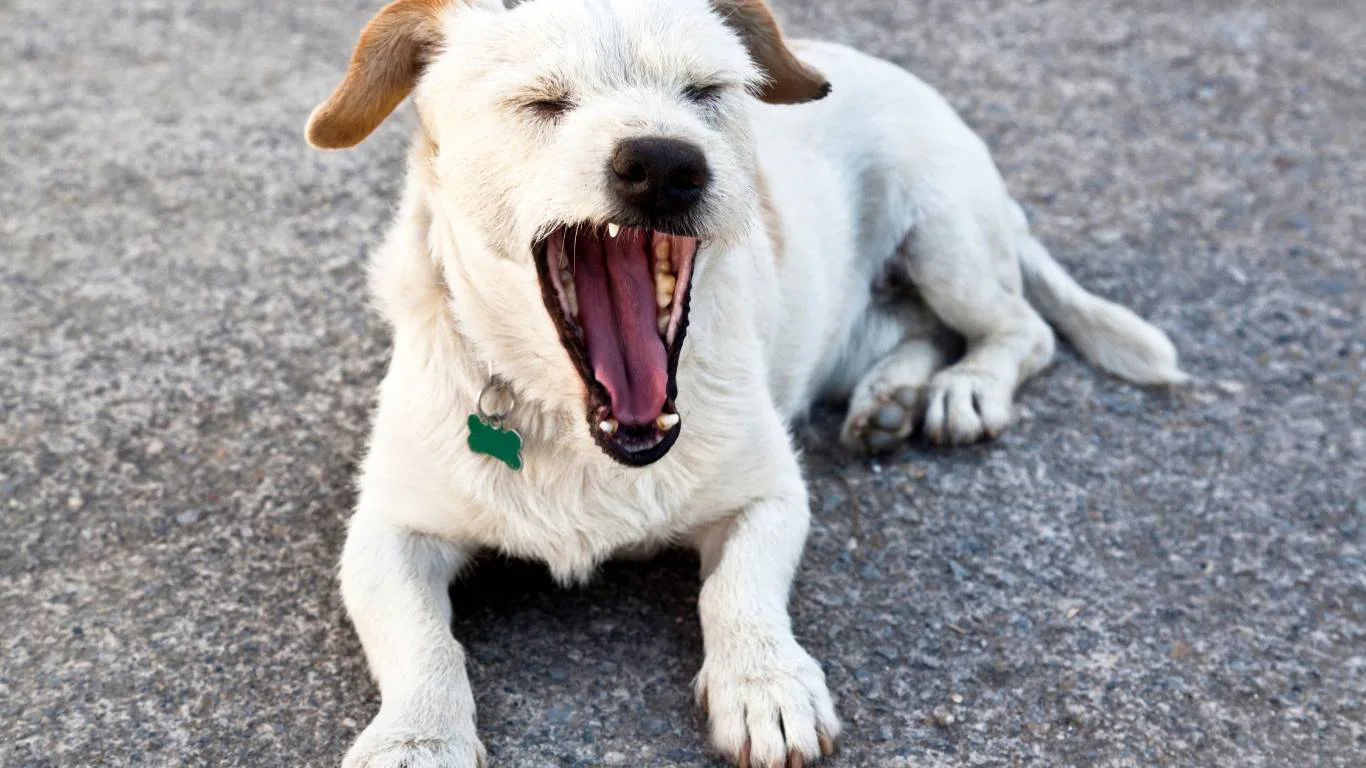
Now that we know what can cause dehydration, how do we spot it? As a pet nutritionist, I’ve learned that the earlier you notice the signs, the quicker you can act. Let’s go over the most common signs of dehydration in puppies, so you know exactly what to look for:
1. Dry or Sticky Gums
One of the first things I always check when I suspect dehydration is a puppy’s gums. Healthy puppy gums should be moist and slick. If they’re dry, sticky, or tacky to the touch, it’s a sign that your puppy may be dehydrated. A simple test I use is gently lifting their lip and pressing down on their gums with my finger. If the area doesn’t return to its normal color within a couple of seconds, that’s a red flag.
2. Sunken Eyes
Dehydration can cause your puppy’s eyes to appear sunken or dull. If you notice your puppy’s eyes looking more hollow or not as bright and alert as usual, this could be a sign they’re lacking adequate hydration.
3. Lethargy and Weakness
Healthy puppies are curious and active. If your puppy starts acting sluggish, seems uninterested in playing, or doesn’t respond to their favorite activities, dehydration might be to blame. Dehydrated puppies lack the energy to engage in their normal activities, which can quickly lead to them becoming more lethargic.
4. Loss of Skin Elasticity
Another way to check for dehydration is by doing a simple skin pinch test. Gently lift a fold of skin on the back of your puppy’s neck. When you release the skin, it should snap back into place almost immediately. If the skin takes longer to return to its normal position, it’s a sign that your puppy may be dehydrated.
5. Dry Nose
A puppy’s nose is usually moist and cool to the touch. If your puppy’s nose is dry, cracked, or warm, this could indicate that they are dehydrated. However, keep in mind that some puppies naturally have drier noses, so this symptom is more concerning when accompanied by other signs of dehydration.
6. Decreased Urine Output
Dehydrated puppies often urinate less frequently or in smaller amounts. If you notice your puppy isn’t going potty as often as usual or their urine is very dark in color, this could be a sign of dehydration.
How to Treat Dehydration in Puppies

When you suspect dehydration, it’s important to act quickly. Depending on the severity, there are a few different steps you can take to help hydrate your puppy and bring them back to a healthy state. Here are some of the treatments I use, based on my experience as a pet care expert:
1. Offer Fresh Water
The first and easiest step in treating dehydration is to offer your puppy fresh, clean water. Make sure the water is at a comfortable temperature, and encourage your puppy to drink small amounts regularly. If your puppy won’t drink from their bowl, try offering them water with a syringe (without the needle) or spoon-fed drops.
2. Offer an Electrolyte Solution
If your puppy is dehydrated due to vomiting or diarrhea, a simple electrolyte solution like Pedialyte can help restore lost minerals and fluids. Make sure to use an unflavored version without any artificial sweeteners, and always consult with your vet for the right dosage for your puppy’s size and age.
3. Wet Food or Broth
If your puppy is reluctant to drink, you can also try offering wet puppy food or broth to help increase their fluid intake. Many puppies are more likely to eat food that’s mixed with water or broth, which helps rehydrate them while giving them some nutrients.
4. Seek Veterinary Care
If you notice severe signs of dehydration, such as extremely dry gums, sunken eyes, or severe lethargy, it’s important to seek veterinary care immediately. In these cases, your vet may need to administer fluids through an IV or subcutaneously to rehydrate your puppy more efficiently.
Remember, the key to preventing dehydration in puppies is regular hydration and being mindful of the conditions that can cause fluid loss. By keeping a close eye on your puppy’s health, providing plenty of water, and acting quickly when you notice signs of dehydration, you can help keep your little companion safe and healthy.
Preventing Dehydration in Puppies
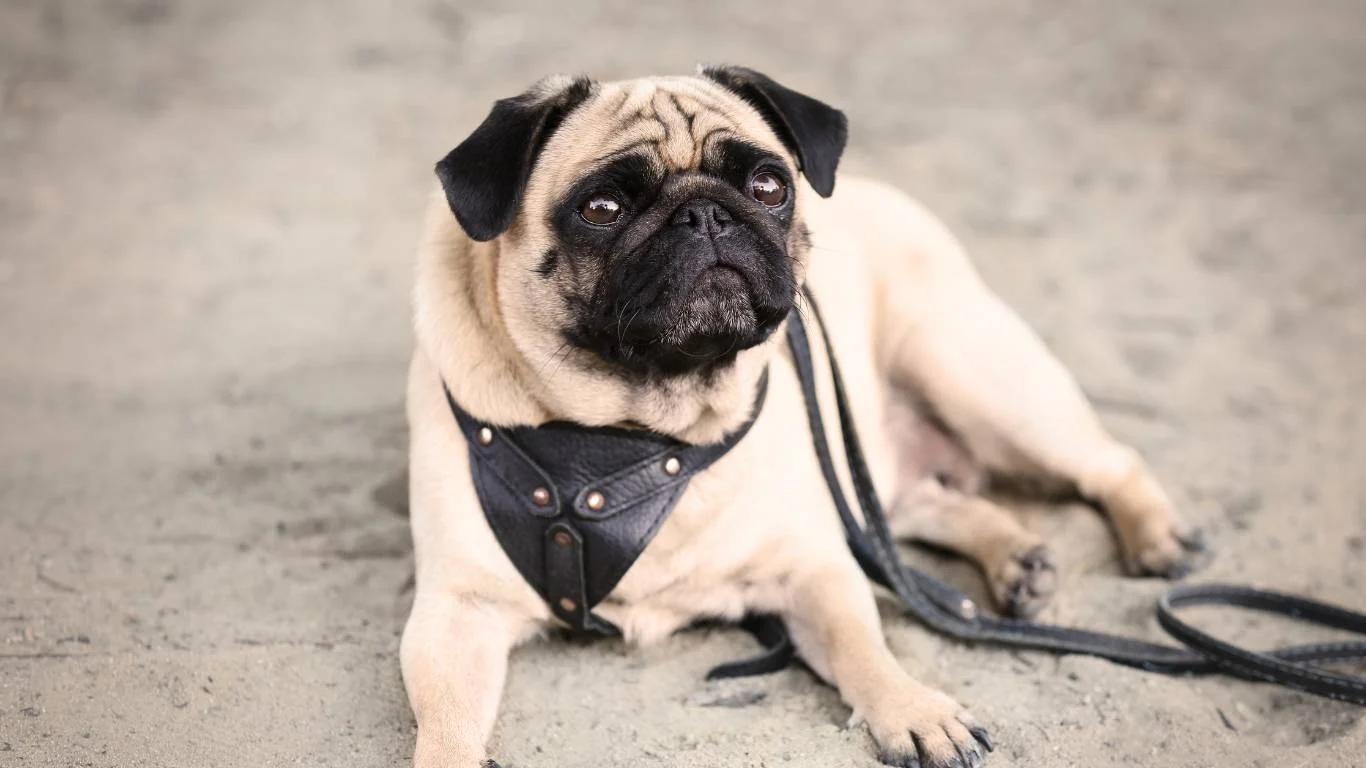
In the first part of this article, we discussed the signs of dehydration in puppies and how to treat it, but just as important as treating dehydration is preventing it in the first place. As a pet nutritionist, I always tell my clients that prevention is key. The good news is, with a few simple changes in your puppy’s routine, you can significantly reduce the chances of dehydration happening at all. Here are some steps I recommend based on my experience working in veterinary clinics:
1. Always Provide Fresh Water
It may sound like an obvious one, but it’s something I still see many pet owners overlooking. Water should always be available to your puppy, no matter what. They might be busy playing or exploring, but hydration is just as important as feeding. Keep their water bowl in a place that’s easy for them to access at all times, and make sure the water is fresh. Clean their bowl regularly, as bacteria can grow in stagnant water, which could deter your puppy from drinking.
In my practice, I’ve seen puppies who don’t drink enough because their water bowls are either too far away from their favorite resting spots or too dirty. Keep that water fresh and accessible, and your puppy will likely drink more often.
2. Keep Your Puppy Cool
Hot weather is one of the most common causes of dehydration in puppies, and it’s something I see frequently in the summer months. Puppies can easily overheat, especially when they’re playing outside, and that can quickly lead to dehydration. I recommend keeping your puppy indoors during the hottest parts of the day. If they must be outside, provide plenty of shade and water breaks.
One of my personal favorite ways to help keep puppies cool in the heat is by getting them a cooling mat or cooling vest. These are excellent investments for keeping your puppy comfortable in hot weather. I’ve seen how much they help puppies, especially those with thicker coats or those who are more susceptible to heat exhaustion.
3. Monitor Exercise and Playtime
As much as puppies love to play, you also need to be mindful of how much exercise they’re getting, especially during hot weather. Puppies can become overexerted without even realizing it, and this can lead to dehydration. Try to keep playtime short and provide plenty of breaks for your puppy to drink water and cool down.
If you’re taking your puppy on walks or runs, make sure to bring along water for them. Some portable dog water bottles are designed specifically for puppies, so it’s easy to keep them hydrated during outings. In my experience, I’ve seen puppies who’ve gotten overheated because their owners didn’t bring water on walks, and the result was often dehydration.
4. Provide Wet Food for Extra Hydration
Another great way to keep your puppy hydrated is by offering wet puppy food in addition to their regular dry kibble. Wet food contains a higher moisture content, which can help keep their hydration levels up. If your puppy is hesitant to drink water or just doesn’t seem to be drinking enough, incorporating wet food into their diet can be a great solution.
Additionally, you can also mix water or low-sodium broth into their kibble to boost moisture intake. I’ve personally seen how a little creativity with their meals can encourage puppies to stay hydrated without much effort. Just be sure to choose high-quality food options to ensure your puppy gets all the nutrients they need.
5. Adjust Their Diet Based on Activity Level
Puppies that are very active need to drink more water than those who are more laid-back. If your puppy is constantly on the move, whether through play, walks, or other activities, they’re losing more fluids and will need extra hydration. Adjust their water intake accordingly. Pay attention to their behavior—if they seem more tired than usual or if their gums seem a bit dry, offer them more water than usual.
I’ve had clients who didn’t realize that active puppies need more hydration than couch potatoes, so they didn’t notice the signs of dehydration as quickly. It’s essential to consider your puppy’s unique needs and adjust their routine based on how active they are.
Recognizing Severe Dehydration in Puppies
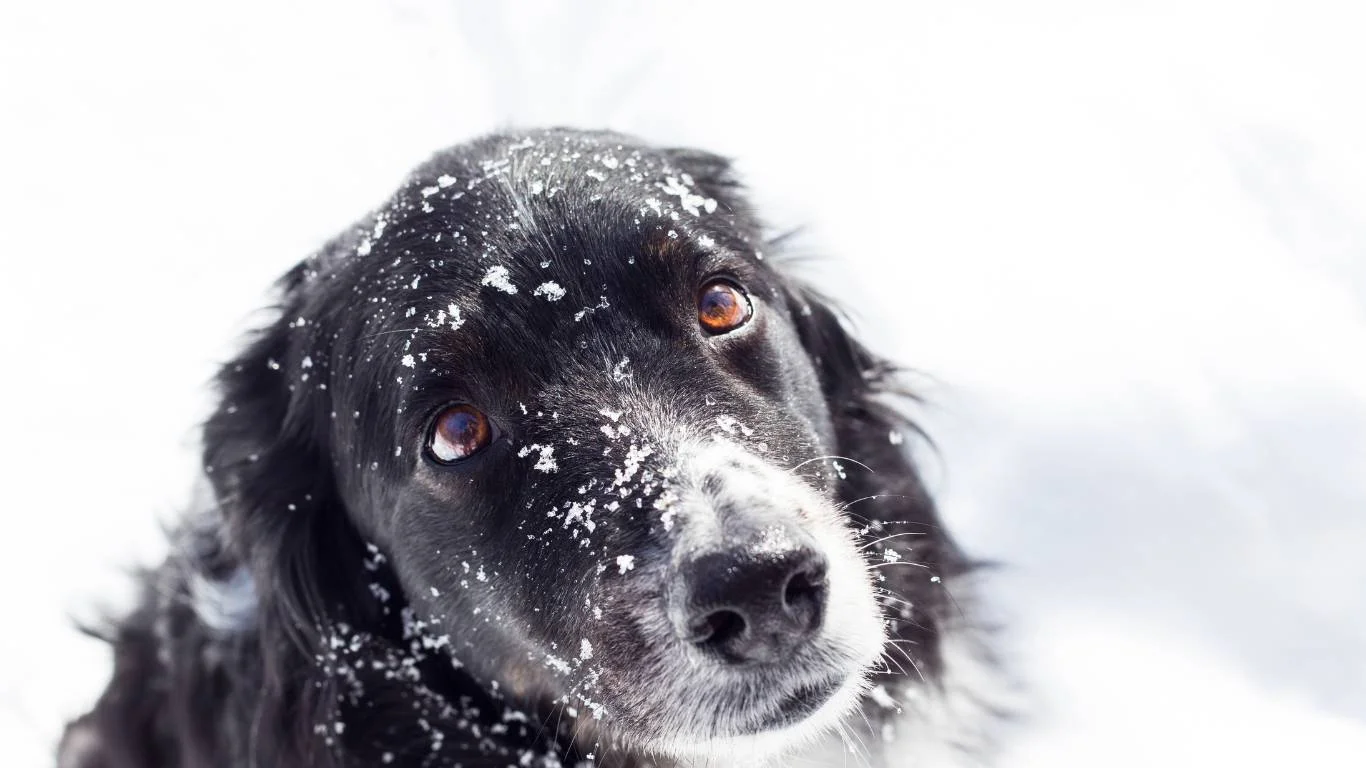
While it’s always better to prevent dehydration in the first place, I know that sometimes things can slip through the cracks, and you might not notice the early signs until your puppy is already showing more severe symptoms. It’s important to understand the difference between mild dehydration, which can often be treated at home, and more severe dehydration that requires immediate veterinary attention.
When to Seek Veterinary Care
If your puppy’s dehydration becomes severe, it can be life-threatening, and they will need to be treated by a professional. Here are the signs that indicate your puppy may be suffering from severe dehydration:
- Very Dry Gums and Mouth – If your puppy’s gums feel bone-dry or sticky, even after offering water, this could indicate severe dehydration.
- Sunken Eyes – Dehydrated puppies can develop sunken eyes, and in severe cases, they may even appear glazed over or dull.
- Weak or Rapid Pulse – A rapid heartbeat or weak pulse is a concerning sign that your puppy’s circulatory system isn’t functioning properly due to dehydration.
- Severe Lethargy or Unresponsiveness – If your puppy is extremely lethargic or unresponsive, this could be a sign of severe dehydration or another underlying issue that needs immediate veterinary care.
- Loss of Skin Elasticity – In severe cases, the skin pinching test may show that the skin doesn’t return to its normal position, even after a few seconds.
How Severe Dehydration Is Treated
If your puppy is showing signs of severe dehydration, it’s crucial to take them to the vet as soon as possible. At the veterinary clinic, your puppy may be treated with intravenous fluids or subcutaneous fluids to help rehydrate them quickly. The vet will also monitor their vital signs and look for any underlying causes of the dehydration, such as infections, gastrointestinal issues, or kidney problems.
In some cases, the vet may also run tests to determine the cause of dehydration, especially if it’s recurrent or associated with other health issues. Once the immediate dehydration is treated, your vet will provide instructions for follow-up care, which may include changes to diet, water intake, or medications to prevent future occurrences.
How to Monitor Your Puppy’s Hydration Regularly

Now that we’ve covered how to recognize dehydration in puppies, treat it, and prevent it, it’s important to think about the long-term. Regularly monitoring your puppy’s hydration is key to making sure they stay healthy and avoid any future episodes of dehydration. This isn’t just about having a water bowl handy, but being proactive in keeping an eye on their water intake, especially during certain times of the year or if they’re going through any changes.
As a pet nutritionist, I recommend checking in with your puppy’s hydration levels every day, and it’s something I always tell new pet parents to keep in mind. You don’t need to obsess over it, but consistency is crucial. Below are a few ways you can easily monitor your puppy’s hydration:
1. Make Hydration Part of Your Daily Routine
As I mentioned earlier, always having fresh water available is a must. But there’s more to it than just placing a water bowl in the corner. Make a habit of filling up their bowl twice a day. Even if they don’t finish it all, having a routine where you replace the water regularly ensures that your puppy always has access to something fresh. I’ve noticed that pets are much more likely to drink if the water is fresh, clean, and free from any residue left over from the previous day.
2. Watch for Any Changes in Behavior
If your puppy’s drinking habits suddenly change—whether they’re drinking much less or more than usual—it’s a good idea to pay closer attention. A decrease in water intake could be a sign that something’s wrong. On the flip side, if they’re drinking excessively, that could signal a health issue that needs a vet’s attention, like diabetes or kidney problems.
Being a pet nutritionist, I always recommend owners to keep a mental note of their puppy’s typical drinking patterns. For example, how much do they drink per day? If you see a sudden shift, it’s time to look at other factors, like their diet, environment, and overall health. I’ve had clients tell me that their puppies’ drinking habits changed after they introduced a new food or after a stressful event like travel. Sometimes, it’s a temporary thing, but it’s worth noting so you can talk to your vet if needed.
3. Know the Signs of Mild Dehydration
Even though we covered signs of severe dehydration earlier, there are also early, milder signs that you can watch for regularly. These include slightly dry gums, a bit of lethargy, or maybe your puppy isn’t playing as much. If you notice any of these signs, offer them some extra water and observe if they improve. As a pet nutritionist who’s worked in various veterinary settings, I’ve seen firsthand how catching dehydration in its early stages can make a huge difference in treatment.
4. Use Hydration-Boosting Products
If your puppy seems to struggle with drinking water consistently, there are a number of hydration-boosting products that can make things easier for them. Some pet stores offer flavored water, or you can add a bit of low-sodium chicken broth to their water to encourage drinking. I’ve had clients with puppies who were super picky about water, but once they introduced a little flavor, the puppies drank more regularly. Just be cautious to choose products that are safe for puppies and free of any harmful additives.
When Should You Call a Veterinarian?

Even though dehydration in puppies can often be treated at home with the right steps, there are times when it’s important to seek professional help. As someone who’s worked in veterinary clinics, I know that some situations need immediate attention, and your vet is the best resource for dealing with dehydration in puppies. Here are some instances when you should call a vet:
1. If Dehydration Becomes Severe
If your puppy is showing severe signs of dehydration—such as sunken eyes, excessive lethargy, or a rapid pulse—you should seek emergency veterinary care immediately. Severe dehydration can lead to shock and organ failure, which can be fatal if not treated quickly. Don’t wait for symptoms to worsen; get your puppy to the vet as soon as you can.
2. When Other Health Problems Are Involved
If your puppy has been vomiting or has diarrhea for an extended period, dehydration could be a sign of an underlying health issue, such as gastrointestinal infection, parasites, or even a viral infection. These issues often require more than just rehydration; they need medical treatment and care from a veterinarian. In my experience, I’ve seen puppies who seemed to be dehydrated but were actually suffering from a more serious problem that required diagnostic tests.
3. If Hydration Doesn’t Improve with Home Treatment
Sometimes, despite your best efforts to hydrate your puppy at home, their condition may not improve. If your puppy refuses to drink, is vomiting up water, or shows no improvement in hydration after a few hours of offering water and electrolytes, it’s time to reach out to your vet for professional intervention. IV fluids might be necessary in these cases, and only a vet can properly administer them.
References
Disclaimer
The information provided in this article is for educational purposes only and should not replace professional veterinary advice. If your puppy is showing signs of dehydration, or if you’re concerned about their health, please consult your veterinarian as soon as possible. Every puppy’s health and hydration needs are unique, and only a qualified professional can provide personalized care and treatment.
